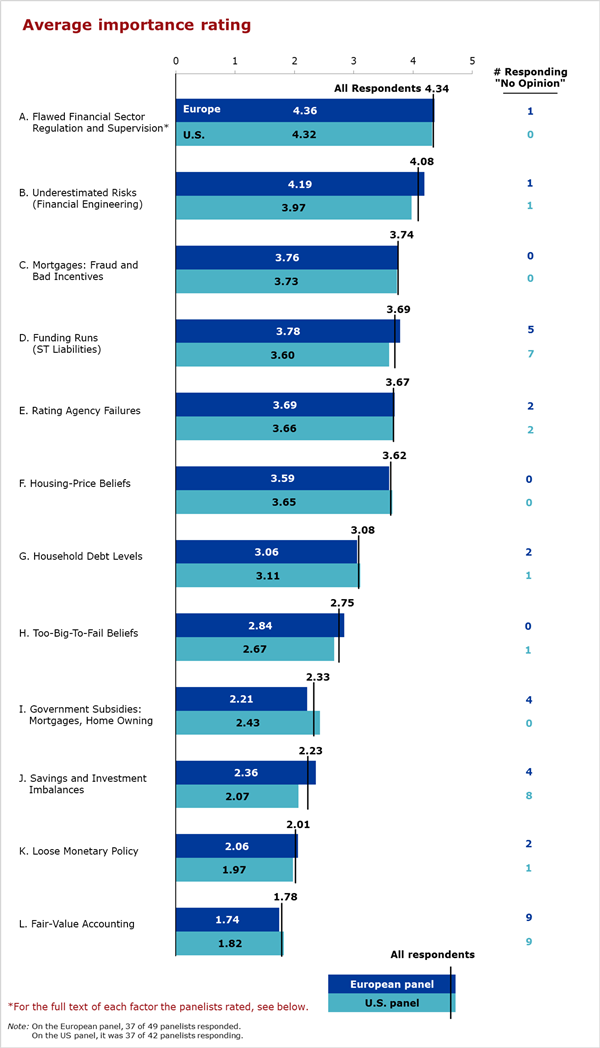It’s been 10 years since the world economy teetered on the edge of financial collapse, and the effects are still being felt.
To help explain the conditions that put the economy in such dire straits, the University of Chicago Booth School of Business turned to top economists in the U.S. and Europe sitting on Booth’s Initiative on Global Markets (IGM) experts panels. In a special survey, the European and U.S.-based IGM Economic Experts Panels rated the importance of 12 potential factors contributing to the 2008 global financial crisis.
The main culprit of the crisis: flawed financial regulation and supervision of the financial sector, followed closely by underestimating the risk inherent in securities created with financial engineering. Mortgage fraud ranked third. Household debt rated seventh.
Both American and European economists agreed that many factors were to blame, underscoring the complexity of the crisis, and perhaps, the difficulty of preventing the next one.
“No one cause,” commented Chicago Booth’s Richard Thaler in the survey. “Lots of blame to attribute.”
“There was fraud but also overconfidence,” noted Harvard’s Oliver Hart. “When many key firms fail at the same time, politics forces the government to act.”
Frankie Allen at the Imperial College London summed it up this way: “The causes of the financial crisis are numerous. Much more work needs to be done to understand the relative importance of each.”
For Martin Hellwig, from Max Planck Institute for Research on Collective Goods, the 2008 crisis was a tremendous market failure, facilitated by bad regulation and weak supervision. “TBTF (being too big to fail) was less important because they never thought of failing. Global interconnectedness, direct or through market prices, should also be high on the list.”
Many factors contributed to the 2008 global financial crisis, adds Hélène Rey, from the London Business School. “But at the heart of the mechanism was a dysfunctional financial sector with misallocation of capital, bad incentives, insufficient supervision and some fraudulent behaviour.
The goal of the IGM Experts Panel is to explore experts’ views on some of the most important questions facing the global economy and to share these views directly with the public in a simple way, hopefully alerting those in financial services to build robust risk models to avoid another catastrophe like the 2008 financial crisis.







